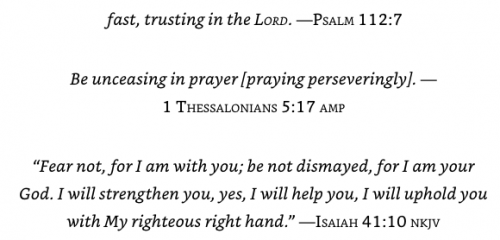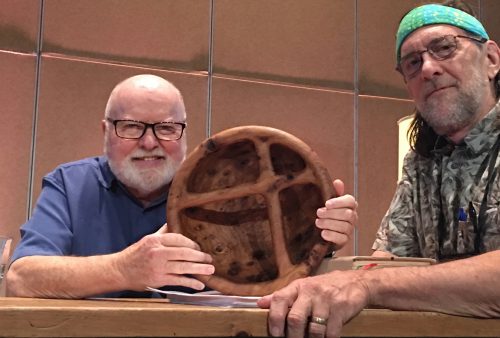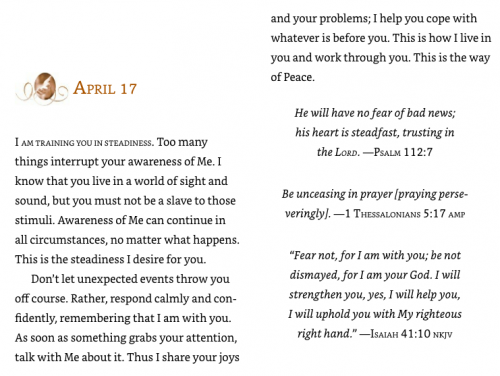Friday, April 17, 2020
When we try to live in solidarity with the pain of the world—and do not spend our lives running from it—we will encounter various forms of “crucifixion.” Pain is physical or emotional discomfort, but suffering often comes from our resistance to that pain.
The soul must walk through such suffering to go higher, further, deeper, or longer. The saints variously called such suffering deaths, nights, darkness, unknowing, spiritual trials, or just doubt itself.
Necessary suffering allows us to grow, but “in secret” (Mark 4:26–29), which is an amazingly common concept, both in the teachings of Jesus and of many of the mystics. Such growth must largely be hidden because God alone can see it and steer it for our good. If we try too hard to understand it, we will stop the process or steer it in the wrong direction.
It seems there is a cruciform shape to reality with cross purposes, paradoxes, and conflicting intentions everywhere. Jesus hangs right there amid them, not even perfectly balancing them, but just holding them (see Ephesians 2:13–22). This deserves a major “Wow!” because mere philosophy or even proper theology would never have come to this conclusion.
The virtue of hope, with great irony, is the fruit of a learned capacity to suffer wisely, calmly, and generously. The ego demands successes to survive; the soul needs only meaning to thrive. Somehow hope provides its own kind of meaning, in a most mysterious way.
The Gospel gives our suffering both personal and cosmic meaning by connecting our pain to the pain of others and, finally, by connecting us to the very pain of God. Did you ever think of God as suffering? Most people don’t—but Jesus came to change all of that.
Any form of contemplation is a gradual sinking into this divine fullness where hope lives. Contemplation is living in a unified field that produces in people a deep, largely non-rational, and yet calmly certain hope, which is always a surprise.
A life of inner union, a contemplative life, is practicing for heaven now. God allows us to bring “on earth what is in heaven” (Matthew 6:10) every time we can allow, receive, and forgive the conflicts of the moment. Such acceptance allows us to sit in some degree of contentment—despite all the warring evidence.
God alone, it seems to me, can hold together all the seeming opposites and contradictions of life. In and with God, we can do the same. But we are not the Doer.


